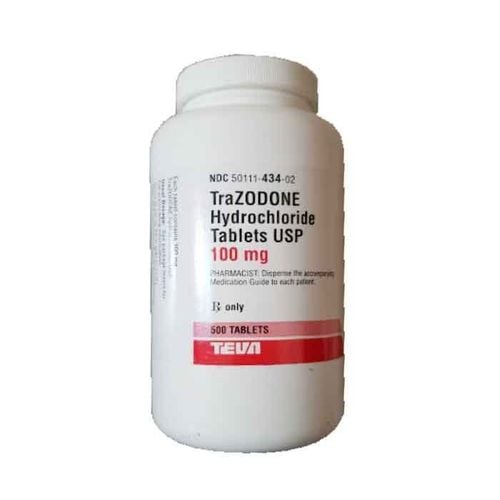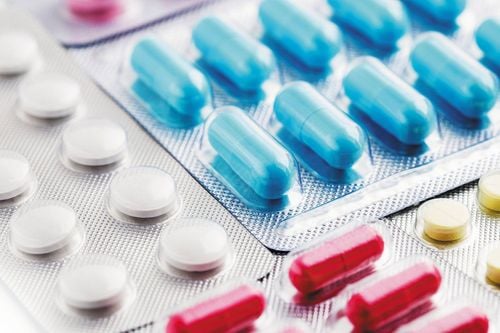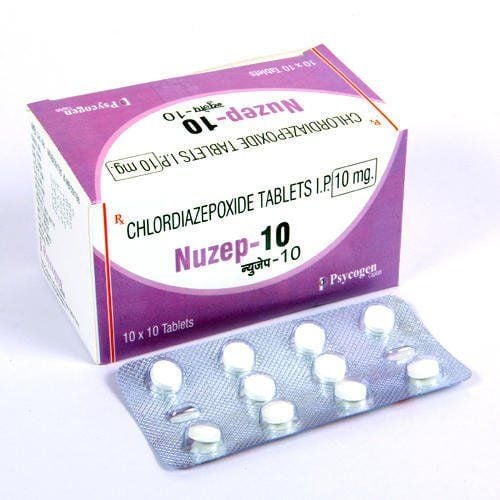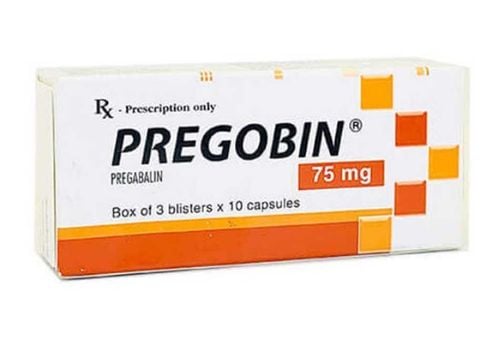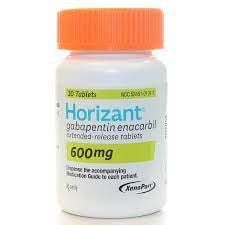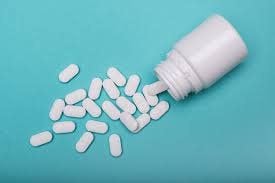This is an automatically translated article.
Psychotherapy is the mainstay of treatment for mental illnesses. There are many different groups of drugs for mental illness, which doctors will prescribe depending on the specific condition of the patient.1. Can medication cure mental illness?
Medications do not cure mental illness but can help control the most worrisome symptoms of mental illness, helping the person to return to a normal, near-normal life. The use of drugs to reduce the symptoms of the disease also helps to improve the effectiveness of other combined treatment methods such as psychotherapy,...
There are many different groups of drugs for mental illness, which doctors prescribe. The drug depends on the specific condition of the patient. Medicines need to be used according to the instructions for the most effective treatment. Are psychoactive drugs harmful? In fact, each drug has certain side effects, and adherence to treatment instructions and dosage regimens will greatly reduce the risk of harm. Adverse effects are variable between individuals, with some patients experiencing more severe side effects than others. Therefore, when the body appears abnormal symptoms, the patient should notify the doctor for timely intervention.
2.Medications for mental illness
2.1. What are the medications for depression?
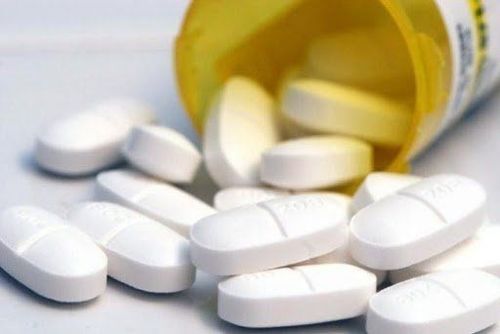
Thuốc chống trầm cảm ba vòng (TCA)
Depression is a long-lasting mood disorder with symptoms such as despair, boredom, disinterest in the surrounding life,... The disease can happen to anyone, but the prevalence is high. in women, ages 18-45. There are many classes of drugs that can be used to treat depression such as: Selective serotonin reuptake inhibitors (SSRIs) include drugs such as Citalopram, Escitalopram, Fluoxetine, Fluvoxamine, Paroxetine, Sertraline, ... Serotonin-norepinephrine reuptake inhibitors (SNRIs): Desvenlafaxine, Desvenlafaxine succinate, Duloxetine, Levomilnacipran, Venlafaxine,... Tricyclic antidepressants (TCA): Amitriptylin, Imipramine, Nortriptyline, Doxepin,... monoamine oxidase inhibitors (MAOIs): Isocarboxazid, Tranylcypromine, Phenelzine, Selegiline, ... Some atypical antidepressants such as Bupropion, Mirtazapine, Trazodon,... The doctor will prescribe medication based on to the specific condition of the patient. Antidepressants usually take 4-6 weeks to fully work. Doctors often combine drugs in different drug classes to enhance treatment effectiveness. If the patient's condition does not improve, the doctor may consider switching to another medication.
Side effects of antidepressants vary widely depending on the medication you are taking and may improve as your body adapts to the medication. One thing to be very careful about is that the patient should not stop taking the drug suddenly due to the high probability of relapse of depression and other dangerous symptoms. When you intend to stop taking the drug, the patient should inform the doctor so that the doctor can adjust the dose gradually over a few weeks before stopping completely.

Rối loạn lo âu kéo dài sẽ gây ảnh hưởng đến cuộc sống
2.2. What are the medications used to treat anxiety disorders?
Anxiety disorder is a type of psychological disorder in which the patient often feels excessive worry about situations and events in daily life. Long-term anxiety disorder will severely affect the patient's life, so it should be detected early and treated promptly.
The group of psychiatric drugs used to treat anxiety disorders include:
Antidepressants, especially SSRIs The Benzodiazepine group of drugs includes drugs such as Diazepam, Alprazolam, Clonazepam, Lorazepam,... These drugs have the advantage of being quick-acting, but they can be addictive if taken for a long time. Therefore, benzodiazepines are only used for short periods of time to help patients get through stressful periods. Common side effects are drowsiness, poor concentration, dizziness, loss of coordination,... Buspirone: is the only non-narcotic serotonergic drug, commonly used to treat anxiety disorders. generalization (GAD). Patients must take Buspirone for several weeks to improve symptoms. The side effects of the drug are headache, feeling bored, insomnia,... In addition, some anti-epileptic drugs such as Gabapentin, Pregabalin in some cases are also used by doctors to treat these conditions. anxiety disorder.
MORE: Does long-term use of medication for anxiety disorders have any effect?
2.3. Drugs used to treat psychosis? A mental disorder is a state of irrational thinking, false beliefs (delusions) or perceptions (hallucinations). Antipsychotics are often used to treat this condition:
Old generation antipsychotics (typical): Clopromazine, Haloperidol, Levomepromazine, Promazine,... New generation antipsychotics: Risperidone, Ziprasidone, Olanzapine, Amisulpride, Clozapine, Aripiprazole, Asenapine, Lurasidone, Cariprazine,... Antipsychotics have many different side effects, some patients may experience more side effects than others. If the side effects are seriously affecting the patient's life, the doctor will consider changing the drug or dosage. Some common side effects are:
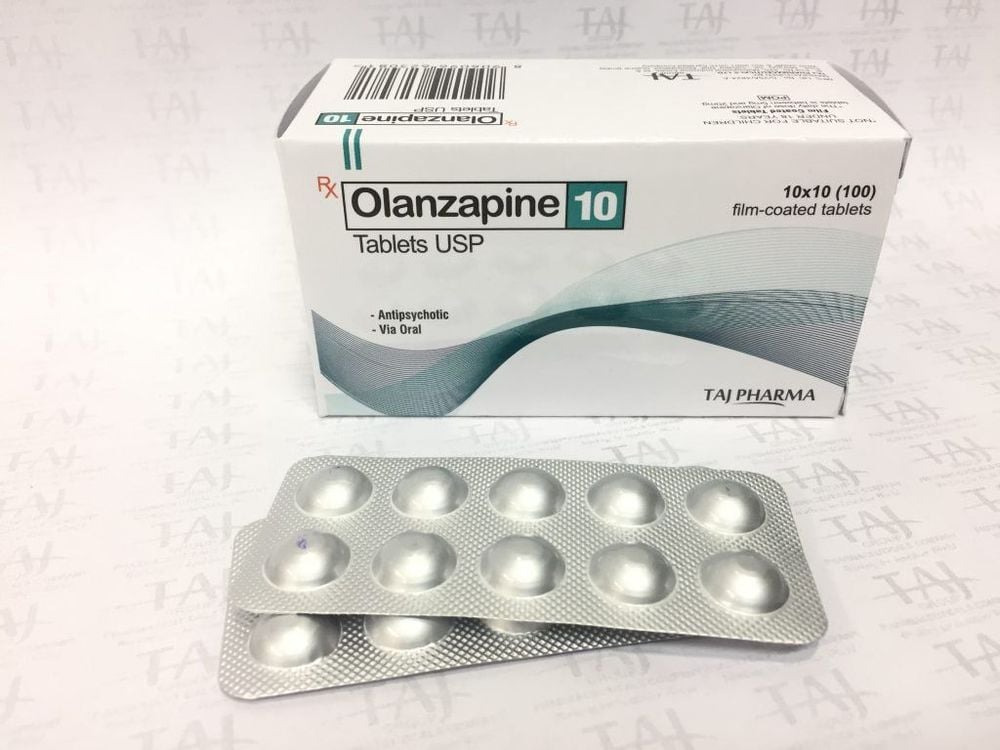
Thuốc Olanzapine là thuốc chống loạn thần thế hệ mới dùng để điều trị chứng rối loạn tâm thần
Antipsychotics have a wide range of side effects, some patients may experience more side effects than others. If the side effects are seriously affecting the patient's life, the doctor will consider changing the drug or dosage. Some common side effects are:
Drowsiness Fast or irregular heartbeat Dizziness when changing positions Decreased interest or ability in sex Menstrual disorders Rash or skin sensitivity to the sun Weight gain Muscle spasms Slowed movement and speech Side effects are usually mild and may go away after a few weeks of treatment as the patient's body adapts to the medicine. However, in rare cases, serious side effects may occur, such as:
Tardive dyskinesia: the patient has abnormal and uncontrollable movements such as sticking out the tongue, smirking, twisting, sometimes jerky movements. Neuroleptic Malignant Syndrome: This is a potentially fatal disorder characterized by severe muscle stiffness (joint stiffness), sweating, fever, high blood pressure, delirium, coma. Agranulocytosis: The patient's white blood cell count decreases, increasing the risk of infection and the risk of death. In addition, some antipsychotics can cause increased blood sugar (which can eventually lead to diabetes), increased cholesterol and blood triglycerides. The doctor will assign the patient to test these parameters to monitor during drug treatment.
New generation atypical antipsychotics are better tolerated, with fewer side effects such as drowsiness, movement disorders, so they are now commonly used. However, when using these drugs, the doctor will monitor the risk of metabolic disorders and weight in the patient.
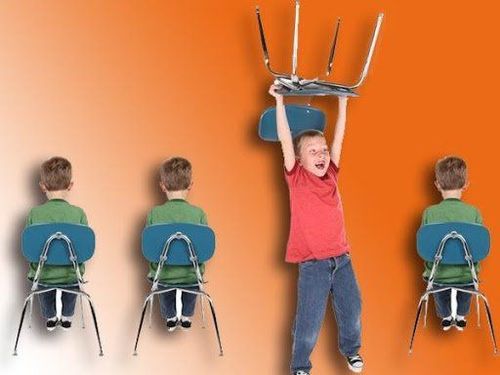
Rối loạn tăng động, giảm chú ý là chứng bệnh phổ biến ở trẻ nhỏ
2.4. What medications are used to treat attention deficit hyperactivity disorder?
Attention Deficit Hyperactivity Disorder (ADHD) is a common neurodevelopmental disorder in children. These psychiatric drugs include:Psychostimulants such as: Amphetamine, Methylphenidate, Dextroamphetamine, Lisdexamfetamine, Methylphenidate. These drugs act on the nervous system to alter neurotransmitter function and alter the neurobiological problems that children with ADHD have. A group of non-stimulating drugs such as: Atomoxetine, Bupropion, Venlafaxine, Clonidine,... The drug helps affect certain areas of the brain to help children increase behavioral control and attention. All medications for ADHD on their labels must detail serious warnings about their use, including the risk of stroke, heart attack, and psychiatric problems such as mania or psychosis.
SEE ALSO: What happens when a child has attention deficit hyperactivity disorder?
2.5. What drugs are used to treat mental illness in children? Antipsychotics in adults are also used to treat similar illnesses in children. However, your doctor will adjust the dose accordingly and monitor it more closely.
Antidepressants may increase the risk of suicidal thinking and behavior in children with depression and other mental disorders. Parents should discuss with their doctor about measures to prevent this risk.
Drugs are one of the methods of treating mental illness. Depending on the disease as well as the health condition and the subject of the disease, the doctor may prescribe the appropriate drug in different doses. Patients should strictly follow the doctor's instructions to avoid unwanted side effects.
Please dial HOTLINE for more information or register for an appointment HERE. Download MyVinmec app to make appointments faster and to manage your bookings easily.
Reference source: webmd.com



